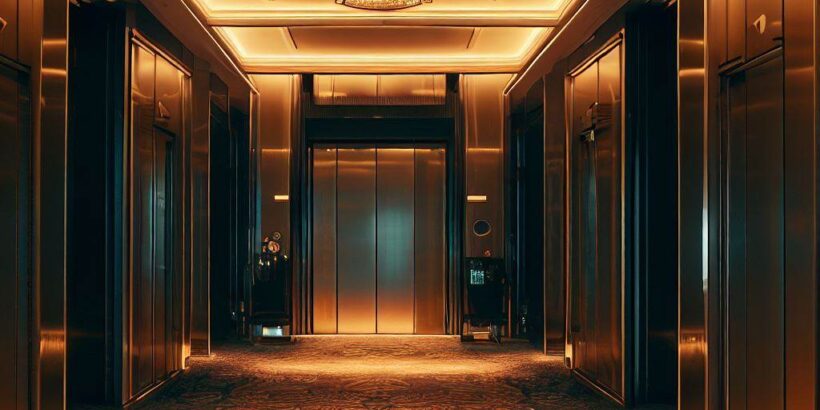Have you ever been in a hurry to get to your hotel room, only to be delayed by the slow-closing elevator doors?
You press the “close door” button, but it seems to have no effect. You start to wonder, does the “close door” button even work?
In this article, we’ll take a closer look at the “close door” button in hotel elevators.
We’ll explain why it may not work in many hotels, and we’ll show you how to use it to your advantage in certain situations.
Table of Contents
Does the “close door” button work in hotel elevators?
The answer is: yes, but maybe not the way you’d expect.
In lots of hotels in the United States, the “close door” button is sort of a placebo button. It may make you feel like you have more control over the elevator, but it doesn’t actually immediately close the doors.
This is in part because of the Americans with Disabilities Act (ADA), which requires elevators to stay open long enough for people with disabilities to get on and off.
Specifically, the U.S. Access Board states, “[u]ser activation of door close (or automatic operation) cannot reduce the initial opening time of doors (3 seconds minimum) or the minimum door signal timing.”
(Sometimes the minimum dwell time is based on the distance between the call buttons and the elevator doors.)
In addition to the ADA, there are also state building codes, local municipality codes, etc., that are added to the mix.
As a result of these codes and restrictions, many owners and installers have programmed the close door buttons to not take effect immediately.
That doesn’t mean the close door buttons don’t “work,” though.
First, they still need to be operational for fire departments and independent services. Otherwise, there’s some big safety issues.
But more pertinent to the average hotel guest, pressing the close door button still could decrease the amount of dwell time the elevator door is open for so that the doors only stay open for the minimum programmed time.
To illustrate, let’s say you hop on a hotel elevator with a minimum ADA open time of three seconds. And let’s say its software is programmed by the hotel for the doors to stay open for 15 seconds. If after the doors open you wait four seconds to hit the close door button, it will probably close at that time. But if you hit it as soon as you board the elevator, it won’t do anything.
So saying these buttons “don’t work” isn’t exactly accurate.
It’s worth noting, there are some hotels where the “close door” button does work immediately.
These are usually older hotels that were built before the ADA was passed or hotels that for whatever reason, don’t have to comply with minimum dwell times.
I’ve personally stayed in a few these over the past few years.
In these hotels, the “close door” button will close the doors as soon as possible, regardless of how long the doors have been open.
So, if you’re staying in a hotel and you’re eager to get to your room, pressing the “close door” button may not do anything, at least not for a few seconds.
But if you’re staying in an older hotel, then pressing the “close door” button might actually help you get to your room faster.
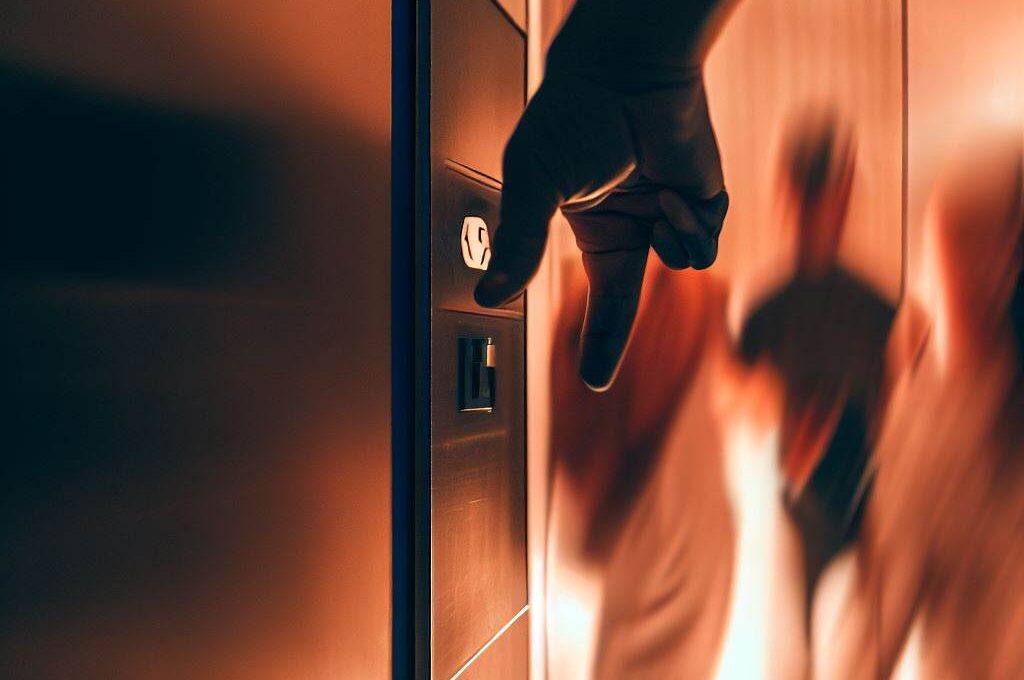
Other uses of the close door button
Older hotels or hotels with older elevators may allow you to use “floor bypass trick” to expedite your trip to a certain floor. This trick works on some elevators, but not all of them.
Here’s how it works:
- Get in the elevator and press the button for the floor you want to go to.
- Hold down the close door button (some say hold down the floor button, too)
- The elevator should start moving to your floor, bypassing any other floors that have been selected.
This trick works because the close door button overrides the other buttons that have been pressed. So, if someone else has pressed a button for a different floor, the elevator will still go to your floor first.
But keep in mind, it’s rare to find elevators where this trick still works and holding down buttons like this on modern elevators might trigger a malfunction or get you stuck on an elevator. I’d suggest not trying this with other passengers in the elevator.
Also, some modern elevators might make it impossible for you to even attempt this trick based on their design.
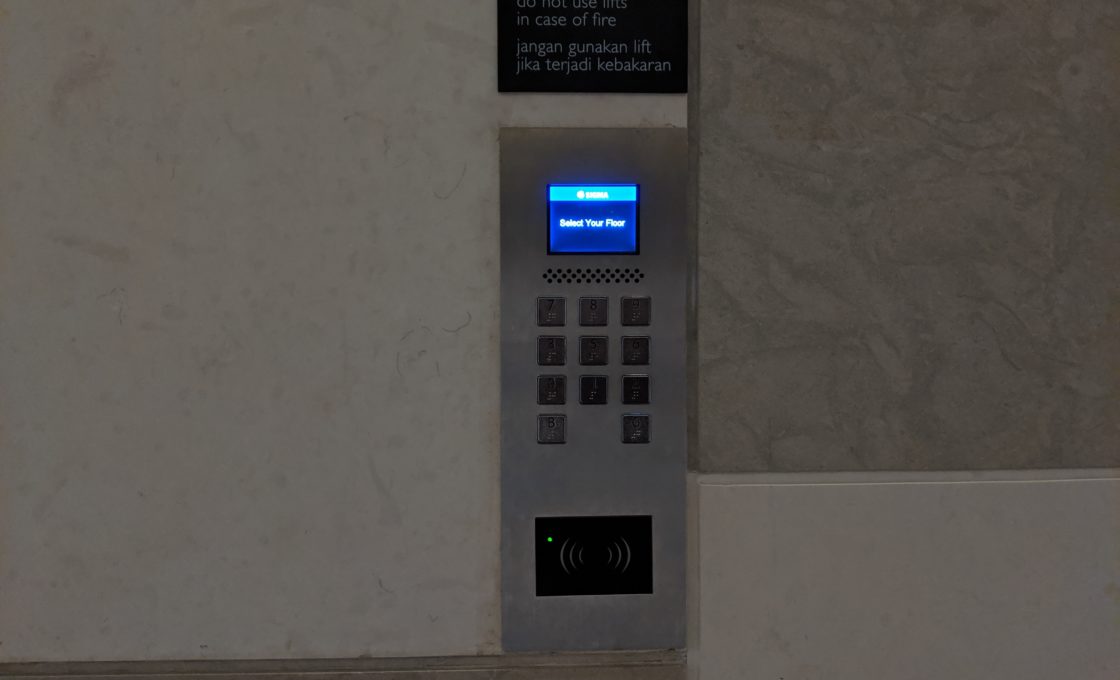
Another use of the close door button could be to “reboot” the elevator. If the elevator doors have been held open for too long (past the allowed “nudging time”) the elevator could go into a door obstruction mode where the doors will not close.
Sometimes if you hold down the close door button this can trigger the elevator to get back to normal.
Finally, you can also sometimes use the close door button to cancel the open door button (a button that should usually work).
So if you’re trying to be nice and you hit the open door button, simply hit the close door button once those other elevator passengers have made it inside to save a few seconds.
(I think this works because at that time, the minimum open door time has probably commenced.)
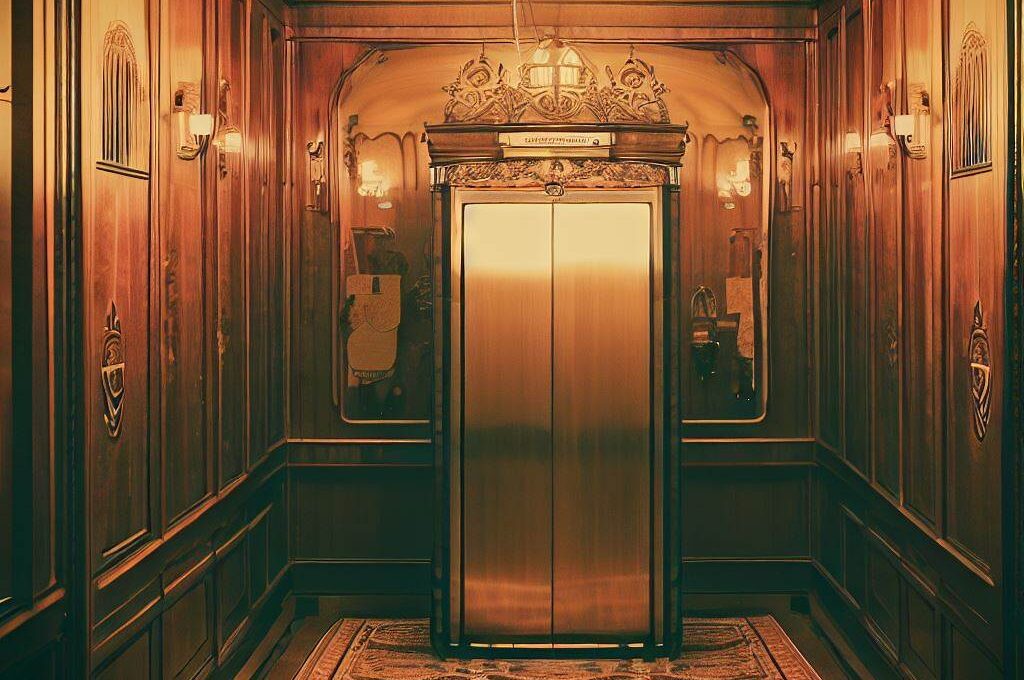
Hotel elevators in different countries
It’s important to remember that other countries may have different regulations and standards that do not align with the ADA. Therefore, when you’re traveling outside of the US, it’s likely that the close door button will have an immediate effect.
In fact, at times, it may even close the door quite rapidly, which can be somewhat alarming!
Some of these elevators in different countries may also have different features you’re not accustomed to in the US. For example, sometimes you can press a button for a floor a second time in order to clear out the request if you happen to hit the wrong button.
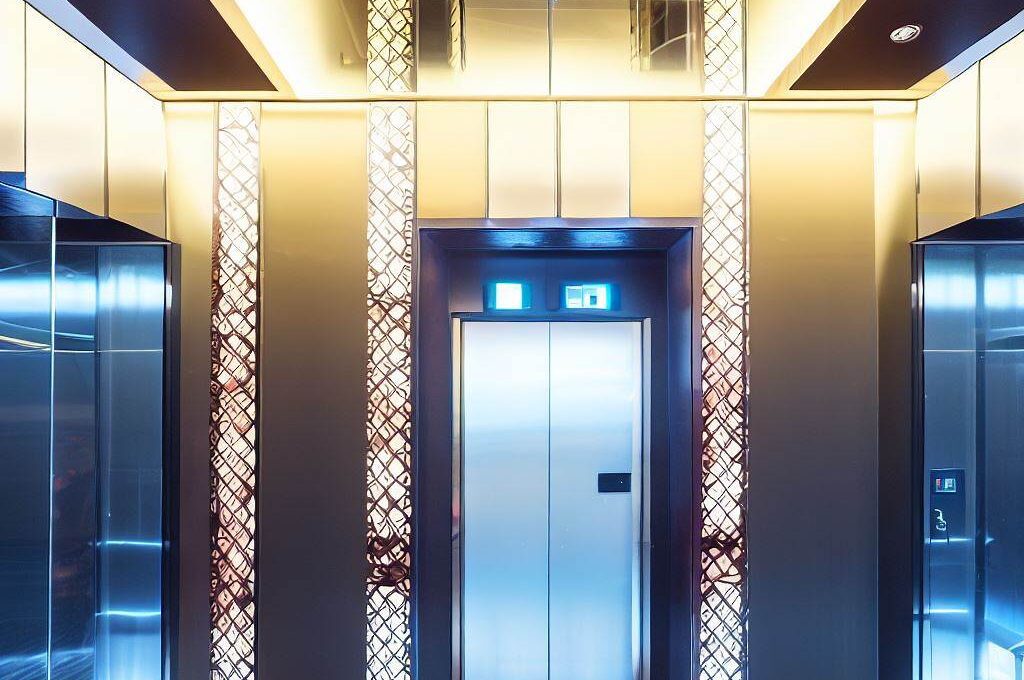
Hotel elevators and the 13th floor
Another interesting observation you might have made is the absence of a designated button for the 13th floor in certain hotels.
This peculiar omission stems from a common superstition held by many individuals, associating the number 13 with potential bad luck. In order to accommodate guests who hold these beliefs, hotels often choose not to officially label or name the 13th floor.
To navigate around this superstition, hotels employ various approaches in handling the 13th floor. To learn more about how hotels address this peculiar situation, refer to this article on hotels and their treatment of the 13th floor.
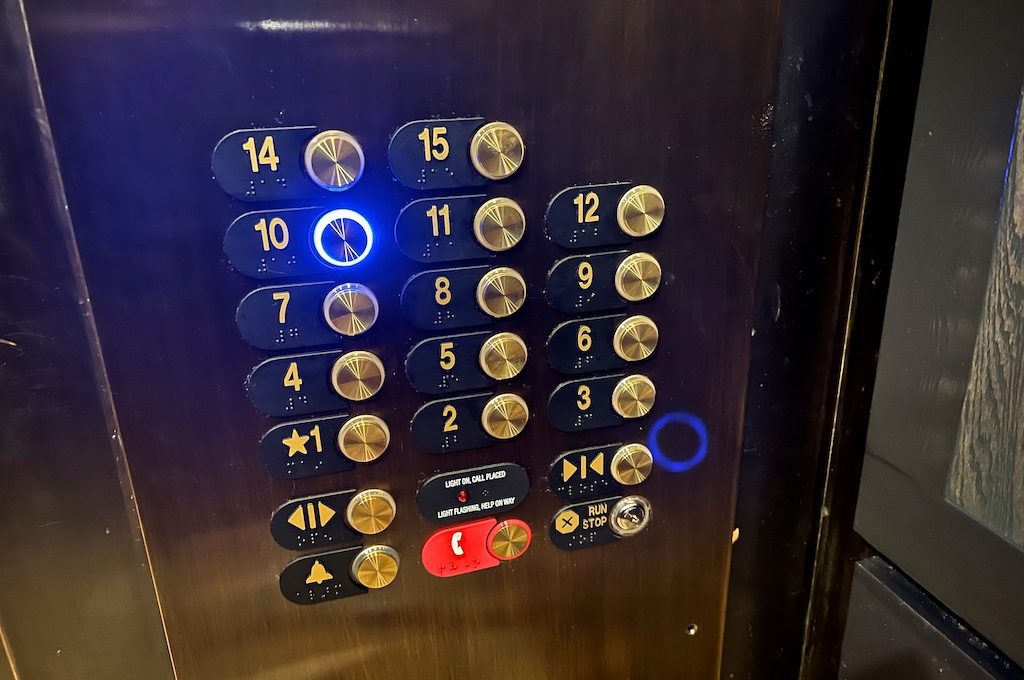
Final word
In US hotels, the “close door” elevator button works but often does not have an immediate closing effect due to the ADA’s minimum required open time.
However, there are still some hotels where it does close the doors promptly and hotels may program their elevators to work differently which is why you might have so many different experiences.
Also, if you’re staying in a hotel outside the US, the close door button will likely work as expected but again it comes down to how the elevator is programmed.
Daniel Gillaspia is the Founder of UponArriving.com and the credit card app, WalletFlo. He is a former attorney turned travel expert covering destinations along with TSA, airline, and hotel policies. Since 2014, his content has been featured in publications such as National Geographic, Smithsonian Magazine, and CNBC. Read my bio.

